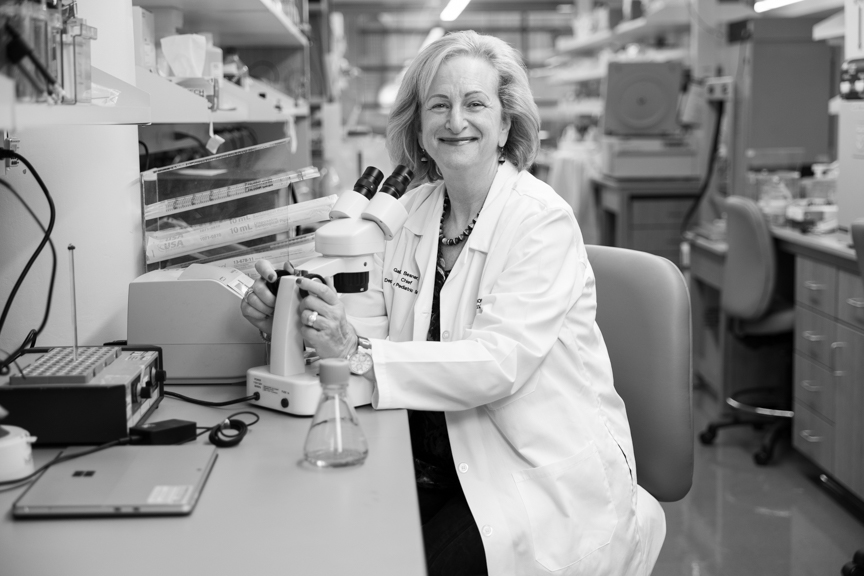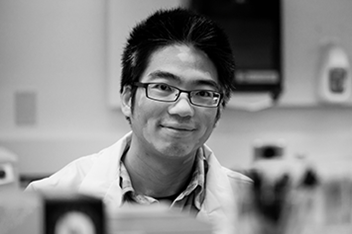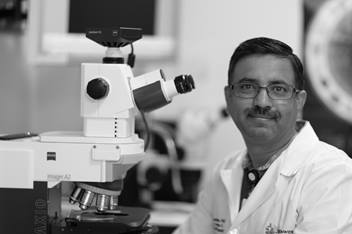Besner Lab

The Besner Lab at Nationwide Children’s aims to eliminate necrotizing enterocolitis (NEC) and its downstream consequences. NEC is a devastating disease that primarily affects premature infants. In severe cases infants develop intestinal tissue necrosis, and surgical intervention is often required. Mortality exceeds 40% in low birth weight neonates, and there is a massive need for improvement in nearly every facet of NEC diagnosis and treatment. The Besner Lab conducts cutting-edge, novel research in both diagnosis and treatment.
NEC Treatment
Presently, there are no specialized treatments for NEC. Treatments are generally broad and focus on ameliorating symptomology. They can include gastric decompression, transfer from enteral feeds to total parenteral nutrition and broad-spectrum antibiotic treatment.
The Besner Lab has multiple lines of inquiry in how to improve NEC treatment:
Probiotics are bacteria that can exert beneficial health effects on the host. The Besner Lab and its collaborators have developed a probiotic delivery system that has demonstrated efficacy in significantly reducing NEC incidence in a rat pup NEC model. The system involved delivery of Lactobacillus reuteri in its biofilm state by incubation on biocompatible microspheres that can be loaded with beneficial cargo.
In addition to treating experimental NEC, this therapy can also treat Clostridium difficile colitis, and the Besner Lab continues to investigate its effects against other gastrointestinal diseases. Its team has also developed a piglet model of NEC to test the probiotic delivery system in a large animal model.
Survivors of NEC often have developmental delays in later life related to cognition and memory gaps. Another line of inquiry in the Besner Lab is how the probiotic supplement may ameliorate these delays. The lab has exciting evidence that delivery of Lactobacillus reuteri in its biofilm state protects the brain in survivors of NEC.
Exosomes are nanosized particles that are released by nearly every cell in the body. They are known to carry regulatory molecules from their parent cell which can act upon other cells elsewhere within the body.
Therapeutics
The Besner Lab has been studying these molecules for their therapeutic potential. The team has isolated exosomes from both breast milk and stem cells and demonstrated that these exosomes are able to reduce NEC incidence in its rat pup NEC model.
Diagnostics
In addition to having therapeutic qualities, exosomes can also be used as biomarkers for disease, given that they carry molecules from potential diseased cells. Presently, NEC infants present with similar symptoms as septic infants in the early stages, but disease treatment is unique between the two.
As with treatment, great improvement is needed in NEC diagnostics. The Besner Lab has been focused on characterizing the cargo molecules of exosomes from NEC patients and comparing them to molecules from babies with sepsis or otherwise healthy babies. By doing so, Dr. Besner and her lab members hope to identify molecules that are present in the exosomes of NEC patients that are more highly abundant than molecules from healthy or sepsis babies.
The Besner Lab is also developing tissue engineered intestine for the treatment of short bowel syndrome. The team has shown the ability to implant tissue engineered tissue in rats and are presently expanding this work into pigs.
Engineered tissue can be used for patients that have had significant portions of their intestines surgically resected, including infants with NEC and adults who undergo surgical remove of injured intestine.



